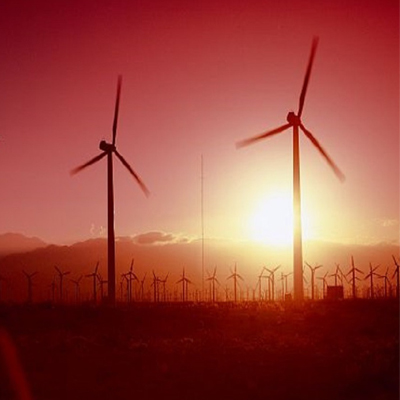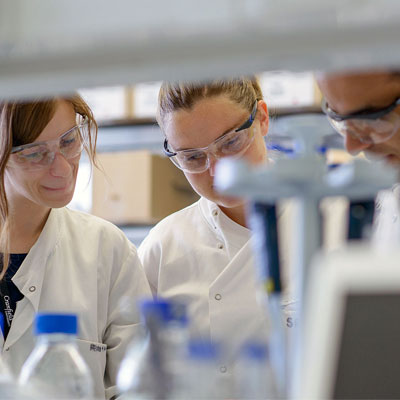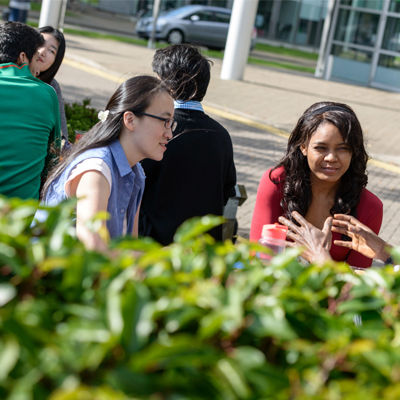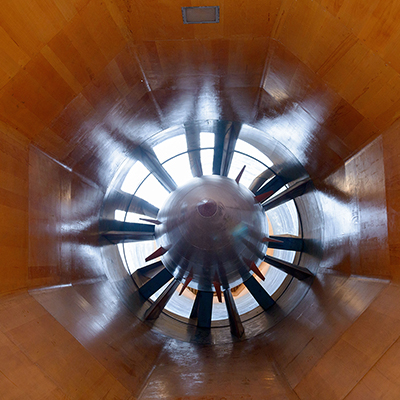Challenges in responding to the nature and climate crisis
This will not be your usual science seminar. I am not going to present neat research questions, describe designed experiments, and come to some insightful conclusions. Instead, I am going to describe the journey that we are starting in the National Trust, to become a fully functional research partner. I want to explain why we are doing this, and what we have to offer. The National Trust is the largest conservation organisation in Europe, and the UK’s largest private landowner. We are applying the latest scientific thinking to responding to the nature and climate crisis at scale, which brings great challenges.
Professor Rosie Hails, Director of Nature and Science at the National Trust
Skills for a net zero future
Reducing greenhouse gas emissions (GHGs) to zero ‘achieving net zero’ sounds good on paper. In reality this means transferring all energy sources from oil, gas and coal to some form of renewable energy, whether wind, solar, hydro, bioenergy or potentially nuclear. This in turn means that every element of our energy system has to accommodate the change in fuel and energy delivery or be replaced. Energy & utility skills have a national coordinating role for the planning and delivery of the skills to achieve this with industry for the whole of the UK.
This talk explains the role that EU-skills leads both in terms of developing and supporting industry-linked education, understanding future demand for the thousands of technical and business staff needed in these areas, as well as seeking to match that with the possible infrastructure that may be in place, which has not even been built.
Phil Beach CBE, CEO of Energy & Utility Skills
Why we will beat the climate emergency: reasons to be cheerful
Sir James Bevan was Chief Executive of the Environment Agency from 2015 until March 2023, leading the EA’s work to tackle climate change, protect and enhance the environment, regulate industry and reduce flood and drought risk. He has over forty years’ experience of government, politics, the media and business, and wide international experience from his prior career in the diplomatic service. During his time in the Foreign Office, he served in India as UK High Commissioner, in Washington, Paris, Brussels and Africa; at home as the Foreign Office’s Chief Operating Officer; and spent a year at Harvard studying organisational leadership and change management. He is now developing a plural career in the public, private and academic sectors.
Sir James Bevan
Mission Possible: A trusted, climate resilient and net zero water service
Professor Simon Parsons is the Director of Strategic Customer Service Planning at Scottish Water, it is his responsibility to ensure customer and regulators needs and expectations are built into Scottish Water’s strategies and plans for the future, ensuring they become a net zero organisation by 2040 and continue to deliver the very best and most sustainable service for all. Simon’s directorate is at the heart of Scottish Water’s sustainability and asset management activities - promoting over £700m of projects each year to maintain and enhance their services. He lead their asset management transformation activities including delivering fundamental changes in how they prioritise and promote investment and the replacement of the complete suite of asset management systems. Simon also has the pleasure of chairing the board of Scottish Water Horizons - a Scottish Water business that leads the way in encouraging growth, delivering renewable technologies, and transforming utilities at home and abroad. Prior to joining Scottish Water in 2012, Simon was Professor of Water Sciences and led the Cranfield Water Science Institute, he now holds a Visiting Professor post at Cranfield.
Professor Simon Parsons, Director of Strategic Customer Service Planning at Scottish Water
Energy and Sustainability at the University of Glasgow
Gioia Falcone holds the Rankine Chair in Energy Engineering at the University of Glasgow, where she is Director of the Glasgow Centre for Sustainable Energy, Associate Director of the Centre for Sustainable Solutions and Head of the Energy and Sustainability Research Group. She is also Visiting Professor at Department of Earth Science and Engineering at Imperial College London and Guest Professor for the Energy Management MBA at the Technical University of Berlin. Until June 2018, she was Professor and Head of the Geo-Energy Engineering Centre at Cranfield University. Between 2011 and early 2016, she held the Endowed Chair and Professorship in Geothermal Energy Systems at Clausthal University of Technology, Germany, where she was also the Director of the Institute of Petroleum Engineering. Gioia was formerly an Assistant and then Associate Professor in Petroleum Engineering at Texas A&M University, Chevron Corporation Faculty Fellow and faculty member of the Ocean Drilling and Sustainable Earth Science partnership. Prior to joining academia, she worked with Eni-Agip, Enterprise Oil UK, Shell E&P UK and Total E&P UK, covering both offshore and onshore assignments. Gioia holds a Laurea Summa Cum Laude in Environmental-Georesources engineering from Sapienza University of Rome, a M.Sc. degree in Petroleum Engineering from Imperial College London and a Ph.D. in Chemical Engineering from Imperial College London. She is Vice-Chairperson of the Bureau of the Expert Group on Resource Management of the United Nations Commission for Europe (UNECE), Co-Chair of its Renewables Sub-Group and its focal point for the UNECE Pathways to Sustainable Energy & Carbon Neutrality Project. She has served on the BEIS (UK Government Department of Business, Energy & Industrial Strategy, now DESNZ) Energy Working Group, chaired by the Chief Scientific Advisor to BEIS, advising on the development of Technical Screening Criteria in the energy sector for the UK Green Taxonomy. She serves on the Board of the Energy Technology Partnership (ETP), the Directorate of Scottish Carbon Capture and Sequestration (SCCS) and the Scientific Committee of the International Conference on Multiphase Flow and Heat Transfer (ICMFHT). She served on the 2020-2023 Board of Directors of the International Geothermal Association (IGA) and the Scientific Committee of the 2022 European Geothermal Congress (EGC). Until June 2021, she was Chair of the Academic Panel of Oil and Gas Technology Centre (OGCT) and, following its repositioning, she became Member of the Net Zero Technology Centre Academic Advisory Panel until early 2023. She is Member of the UK Carbon Capture and Storage Research Centre (UKCCSRC) and University liaison for its membership to the Life Cycle Initiative, hosted by UNEP, and the European Geothermal Energy Council (EGEC).
Professor Gioia Falcone, Rankine Chair of Energy Engineering at University of Glasgow.






